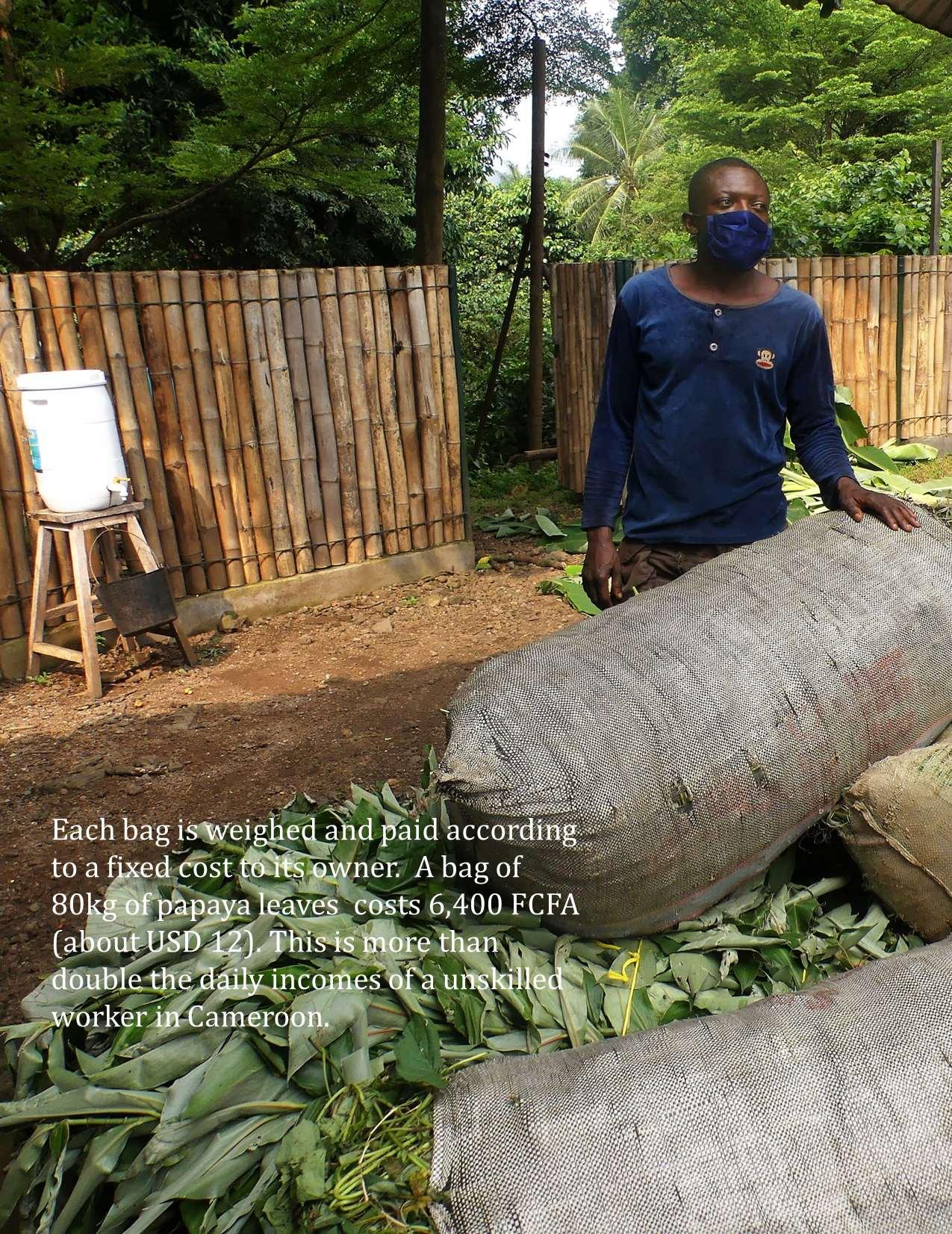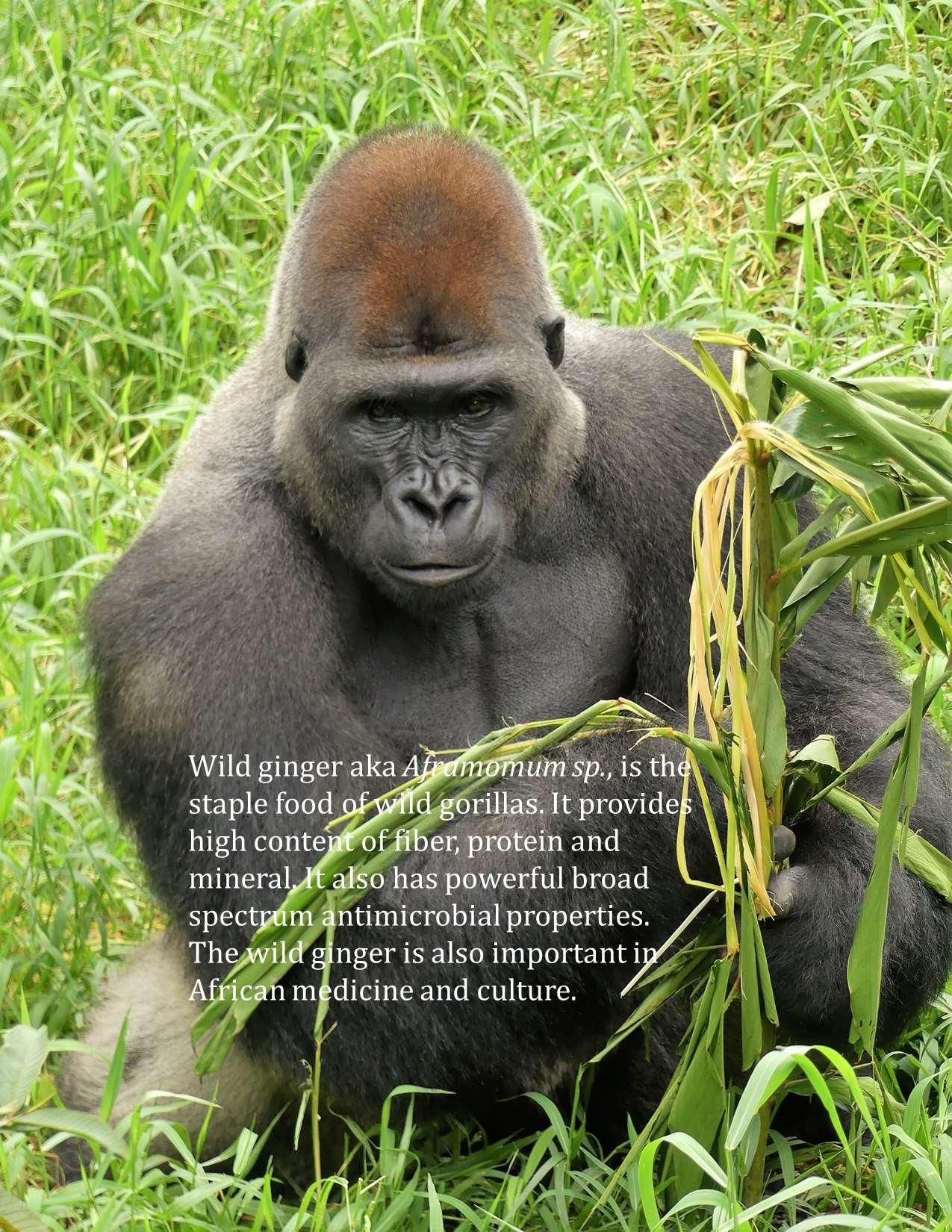
5 minute read
SUMMARY
Project rationale. Communities are central to our conservation approach. Although they are also largely responsible for the depletion of wildlife population and forest encroachment, it is mostly because of a lack of understanding, lack of an alternative to generate incomes and sustain their families. For years, the Limbe Wildlife Centre, through Pandrillus and with the support of many international donors among which New England Biolabs Foundation, Save the Drill, Colombus Zoo, and others supported the community by purchasing a large proportion of green food for the Batoke community, which neighbors the unique Mount Cameroon National Park. This project was created to provide alternative livelihoods to hunting and animal trading by employing the local community to provide wild and domestic plants to our primates. Our communitybased project for the sustainable management of natural resources aka “Green” project includes two activities: 1/ Harvesting wild herbaceous plant sustainably as a way to sustainably feed the wildlife in rehabilitation and financially support the local community; 2/ Increasing land value by purchasing crop by-products to women farmers as a way to reduce encroachment into the Mount Cameroon National Park.
Concept. The Green Project is hence a long-term community-based project that generates new alternative incomes for a hunting community while providing highvalue foods that enhance the diet, health, and well-being of the Primates rehabilitated at the Limbe Wildlife Centre (LWC). In this project, members of the community of the Batoke village are organized in Association working together in partnership with the LWC. The activity of the Association consists of providing each week a specific amount and diversity of plants to the LWC, which organizes the transport, control and payment. The prices have been fixed by consensus between both Parties and therefore are fair, high
Advertisement
and regular enough to alleviate local poverty. Ultimately, these incomes encourage the villagers to reduce the pressure on the surrounding wildlife and allow them to enhance both education and health care to their children. This year, we achieved the first year of a new project as part of our community outreach and education program. The Batoke Family Nature Club aimed to bring families together to understand more about the environmental challenges and to engage the community members to protect wildlife. Each month, our education team organized a set of activities around an important subject i.e. plastic pollution, forest ecosystem to enhancing the knowledge, skills and attitudes of the community towards the nature around them. Perhaps for the first time in their lives, they will learn about and actively participate in various activities relating to conservation. This project is the next logical step towards achieving our long-term goal of creating a conservation community and to identify key individuals within the community who can undertake real conservation action in future years.
Results. For the past year, 12,308,421XAF (22,379 USD) have been generated to the community (+18% compared to last year) and divided between a total of 167 members against 157 last year (+6%), of which 110 permanent members instead of 108 last year (+2%). Women in charge of the harvesting of crop by-products are getting more interested and involved every year, the number of participants raised from 80to 83(+4%). Due to the COVID 19 pandemic raging around the world and affecting our operations since March 2020, the number of women has not significantly increased to limit the number of new members to which our education team would not be able to provide adequate training. Similarly, due to the current socio-political crisis and security issues in the Anglophone regions of Cameroon, the number of men harvesting wild plants has not increased this year but stabilized at 27 (-4%). The increase of interest and participants to the project, either permanently or punctually, has contributed to increasing the amount of browse we provided to improve the health and well-being of our animals. A total of 94.41tonsof fresh cropby product leaves (46% papaya, 42% potato, 12% cassava) and 16.99 tons of wild herbaceous plants of the wild ginger family Zingiberaceae (62% of Aframomum sp. and38% of Costus. sp) were brought to the animals every Tuesday, Thursday and Saturday every month, without interruption, contributing to enhancingthe health of animals, the time spent foraging and stimulating social interactions and well-being. Besides, 5.8 tons of Trumpet wood were provided as enrichment, corresponding to ∼1,200 reproductive organs cut manually to reduce the spread of this invasive plant in South West Cameroon.
A strong community partnership was weakened by the COVID-19 pandemic.
While last year and at the beginning of this year our education implemented pieces of training in wildlife monitoring, understanding of biodiversity and fragility of the ecosystem through our Batoke Family Nature Club, the lack of funds and then the pandemic limited our capacity to conduct meetings with the community. As the sanitary situation and restrictions are being eased, meetings with the community will resume in November 2020. Meanwhile, we needed to sustain the community during this very hard time. Despite financial difficulties resting from loss of sponsorship by international organizations and a financial deficit that reached 100,000 USD, we have guaranteed enough funds to maintain or even increase the amount of food and as a result, our financial support to the community increased and helped the members to face the pandemic and be prepared. We also organized a short meeting and distributed
Peggy Motsch
Manager, Limbe Wildlife Centre face masks in a process to raise awareness of the disease and how to prevent its transmission.
Future development. Next year, we wish to resume the Batoke Family Nature Club to strengthen our relationship with the community in view of developing a more holistic approach at the scale of the SouthEast part of the Mount Cameroon National Park where Batoke and Limbe are located. We will also develop and implement a mass education campaign and produce original education billboards in and around Limbe. To further support new green business initiatives that will be beneficial both for the Limbe Wildlife Centre and the community, we will develop a composting project to provide organic fertilizers to community members to encourage them to convert into organic agriculture and reforestation and reduce encroachment into the forest of the Mount Cameroun
National Park (see Annexe)





